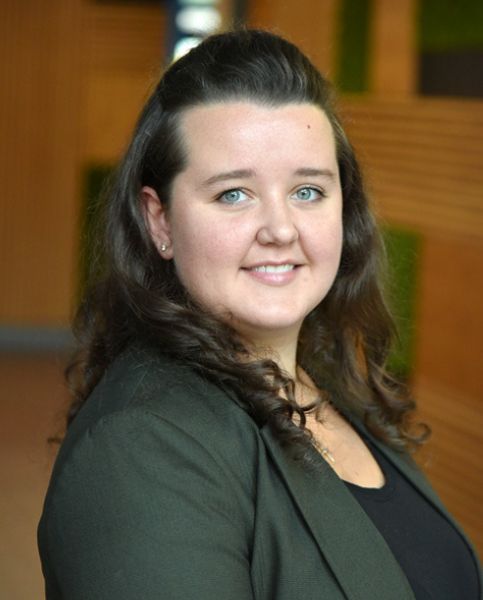Do I Need a Financial Order If I Am Going T...
Same-Sex Parenting Legal Advice.
There are a number of ways same sex couples are able to have a family, and at Lanyon Bowdler, we will work with you to explore the different options.
From surrogacy and sperm donation to adoption, our team of family law specialists is here to help you make informed decisions, identify the best way forward and make sure that everything runs as smoothly as possible.
Our Legal Services for Same Sex Parents
Our family law solicitors are able to advise same sex couples on their options for having a child and can help clients with matters relating to:
- Egg donation
- Sperm donation
- Surrogacy
- Adoption
If you are uncertain of the route to pursue, we will discuss the various possibilities with you and will provide honest and pragmatic advice to help you reach a decision.
We can support you throughout the entire legal process and will ensure all the correct procedures are followed so that you can obtain legal parenthood for your child.
Our Same-Sex Parenting Expertise
Our experienced solicitors can best advice you on same-sex parenting matters. Get in touch today and we would be more than happy to help.
Becoming a parent is the most important thing most of us will ever do. For the team at Lanyon Bowdler, it is an honour and a privilege to see so many of our clients achieve their dream of having a family.
We recognise the particular challenges that same sex parents can face when wanting a child of their own, which is why, whichever route you choose, we will strive to make everything as straightforward and smooth running as possible.
We are on your side and will be with you every step of the way as you embark on this life-changing journey.
Starting or expanding your family is one of the most momentous things you will ever do and you want to get it right. Our family law team possess the highest levels of skill and are best placed to guide you towards a successful outcome.
Lanyon Bowdler is widely accepted to be one of best family law firms in the region, having received accreditations by The Legal 500, the national guide to recommended legal practices and lawyers, and by Chambers UK who has rated our legal service in Band 1 for Shrewsbury and the surrounding areas.
We pride ourselves on delivering exceptional standards of legal advice and customer care throughout England and Wales and will spend the time getting to know you so that we are able to provide you with the fully personalise and bespoke service you deserve.
We won’t confuse you with legal jargon, instead delivering clear, coherent advice that will give you the results you are looking for.
Your same-sex parenting questions answered
The birth mother of a child is always regarded as the legal parent, even when a donor egg is used. The person recognised as the child’s second parent will very much depend on the circumstances in which the conception occurred.
- If the birth mother conceived through a sperm donor at a registered clinic in England and Wales and is married or in a civil partnership, her spouse or civil partner will be the second legal parent and named on the birth certificate.
- If the birth mother has conceived through a sperm donor at a registered clinic but she is not married or in a civil partnership, the non-birth partner will only be recognised as the child’s legal parent through adoption, although she may be granted parental responsibility.
- When a woman conceives with sperm donated through a licensed clinic in England or Wales the donor will have no have legal rights or responsibilities towards any children conceived as a result. Donors’ details are held on the Human Fertilisation and Embryology Authority’s Register of Information however, and anyone conceived as a result of donation will have the right to contact the donor and any genetic half siblings once they reach the age of 18.
- If sperm from someone known to the mother is used, he will be recognised as the child’s second parent.
- Where a known sperm donor or a surrogate is used, legal parenthood can be transferred to the intended parents through a parental order or adoption.
When it comes to donor conception each situation is different, which is why we will provide a fully bespoke and personalised service to ensure our guidance perfectly matches your family situation and goals. We would encourage you to take legal advice as soon as possible so that you can be clear about your legal position and the next steps to take without delay.
Surrogacy is becoming an increasingly popular option for male couples to become parents. This method means that one partner is able to use their own sperm and will be the child’s biological father. The surrogate’s egg will be fertilised through intrauterine insemination (IUI), or in cases where a donor egg is used, in vitro fertilisation (IVF).
For the other partner to be legally recognised as the child’s second parent, the surrogate will need to sign a parental order soon after the birth, transferring her legal rights and responsibilities for the child over to the intended parent and relinquishing her own legal rights as the child’s mother.
An application for a parental order must be made within six months of the child’s birth, otherwise adoption will need to be considered, although there is no guarantee that this will be possible and you may need to pursue an alternative court order to obtain parental responsibility for your child.
Legal Adoption is the choice of many same-sex couples, as well as single people from the LGBTQ community. Pursuing adoption can often be protracted and challenging but we will keep you informed about what is happening and what to expect along the way, to ensure you are able to meet the demands of the process.
In order to adopt a child, there are certain important criteria that you have to meet before you can even be considered as a prospective adoptive parent:
- You must be over the age of 21
- You must live permanently in the UK
- You must not have a criminal conviction for certain offences
If you meet these initial requirements, you will then be subject to an assessment, evaluating your suitability for raising an adopted child, meeting their needs and understanding the potential issues facing them. The assessment will take into consideration factors such as your physical and emotional health, whether you have a support network around you and your financial position. Your work commitments will also be considered along with the amount of time you can take to settle your child into their new home and welcome them into the family.
Once you have successfully completed all stages of the adoption process, you will then be granted an adoption order by the court, severing the legal ties with the child’s birth parents and transferring all legal rights and responsibilities to you.
If you adopt a child as a single person but later marry or enter a civil partnership, your spouse or partner can then also apply to adopt your child.
It is becoming more common for people who are not in a relationship together to co-parent. We can help you to establish the best method for you to conceive a child, based on your individual circumstances and will help you address significant questions about how you each wish to bring up your child.
We will help you obtain legal parenthood for your child and can help you with a co-parenting agreement to address matters such as:
- Residency and contact
- Education
- Religious belief
- Financial contributions
- Future planning, if your situation or relationship status changes
Although co-parenting agreements are not legally binding, having one in place can help you if questions or disputes should arise in the future.
Becoming your child’s legal parent is essential for safeguarding the relationship and bond between you both, for your child’s emotional well-being and for protecting the right and interests of each of you, both now and in the future.
A legal parent:
- Is named on the birth or adoption certificate
- Has parental responsibility for their child
- Has financial responsibility for their child
Legal parenthood can be obtained by either a parental order or an adoption order granted by the courts following the birth of a child.
Anyone intending to apply for a parental order following the birth of their child must do so within six months but the process is relatively straightforward provided you meet the following requirements:
- Be at least 18 years of age
- Live permanently in the UK
- Conception must have been as a result of artificial insemination
- At least one of the applicants must be biologically related to the child
- Intended parents must be living together as partners, be married or in a civil partnership
- No money has exchanged hands for the arrangement, beyond reasonable expenses
The process following the initial application includes attending court hearings, obtaining the surrogate’s consent, preparing a witness statement and undergoing an assessment carried out by CAFCASS (Child and Family Court Advisory and Support Service).
The court will always act in the best interests of the child, which in the majority of cases is to confirm the legal relationship between the child and their intended parents.
If a period of longer than six months has passed since the child’s birth, you will need to apply for an adoption order. This will also be required if neither of the intended parents are genetically related to the child, and conception occurred with donated eggs and sperm.
An adoption order will dissolve the legal relationship between a child and their birth parents, transferring full, permanent legal responsibility to the adoptive parents.
If the intended parents are not eligible to apply for either a parental order or an adoption order there are other court orders which can be explored, including special guardianship, child arrangement orders and specific issue orders. In these cases, the surrogate would remain the child’s legal mother.
One of the first questions that we receive from clients is about how much our family law services cost.
At Lanyon Bowdler, we pride ourselves on providing excellent value for money, delivering top-level legal advice at a reasonable price.
We have developed a number of flexible payment options including fixed fees and pay as you go arrangements so that all of our clients are able to find the best and most cost-effective way of paying, to suit their financial circumstances and budget.
We are fully transparent about our pricing, offer service level guarantees, and will discuss everything with you in detail beforehand so that you are fully informed about your decision.
What our clients say.
Contact the Family Law Solicitors at Lanyon Bowdler
As a leading full-service law firm in Herefordshire, Shropshire and North Wales, we have offices, with established teams of Family Solicitors in Shrewsbury, Bromyard, Conwy, Hereford, Ludlow, Oswestry and Telford, which makes us easily accessible regardless of where you are travelling from.
Our legal services are not limited to these areas however and we frequently act on behalf of clients from all over England and Wales including Birmingham, Wolverhampton and Mid Wales, and we can help you too. We can take instructions over the phone or via video, and are happy to discuss with you the logistics of how our legal service can work for you.
We are renowned for our exceptional levels of expertise and professionalism and you will find our team warm, friendly and down to earth. We genuinely want to help and care about what we do so please feel free to call us for a friendly, confidential chat about how we can support your family plans. Alternatively, you can contact a member of our team by completing the online enquiry form and someone will get back to you as soon as possible.
Meet the team.
Latest knowledge.
Our awards and accolades.
Get in touch.
"*" indicates required fields

 Back
Back



















 Blog
Blog





 Podcast
Podcast








